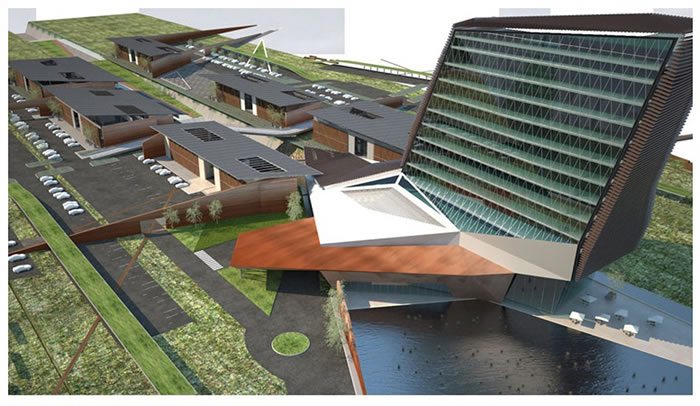The Gauteng BioPark Project successfully completed the first phase of the development. The Innovation Hub in South Africa officially announced the project’s milestone achievement.
Quite impressively, the project is a result of the collaborative effort of the Innovation Hub Management Company (TIHMC) and the eGoliBIO Life Sciences Incubator. Alongside, the Gauteng Department of Agriculture and Rural Development (GDARD) the Gauteng Growth and Development Agency as well as the Gauteng Department of Economic Development (GDED).
The Gauteng BioPark Project covers a total of three main pillars. These include agriculture, health, and the environment. In a nutshell, the R42 million project strives to position Gauteng as a gateway to agro-processed products to the rest of the continent, as well as the world.

Reported On 24 June 2014
South Africa’s Biopark innovation hub in the offing
The innovation hub Biopark in Gauteng, South Africa is already up to capacity with the construction work of phase 1 almost complete.
The phrase might potentially house the Climate Innovation Centre (CIC) with 20 additional pre-commercial companies. It will also enable 10 companies of the Life Sciences Enterprise Project to move into the Biopark in the third quarter of this year.
According to Dr. Boitumelo Semete-Makokotlela the Innovation Hub research, development, and innovation GM, the main aim of Biopark is to speed up the commercialization of biotechnology in South Africa. More especially, through the support of the Department of Science and Technology’s bio-economy strategy. Additionally, the park will aid address key aspects of Gauteng’s Innovation and knowledge economy strategy.
The Innovation Hub had a top-tier focus on information and communication technology. Thus, construction of the Biopark and the establishment of the CIC signal an expansion into the bio- and green economy sectors,” says Semete-Makokotlela.
The main barriers to the entry of these sectors were access to infrastructure. These include manufacturing facilities, laboratories, and equipment for use to service small and medium biotechnology enterprises. The new development will help prevent such barriers.
The feasibility study and the business plan for Biopark are funded by the Gauteng Department of Agriculture and Rural Development.
Phase 1 has 800 m2 of office space, and 500 m2 of manufacturing space while Phase 2 will be 1 600 m2 in size. Construction on Phase 2 of the Biopark is expected to start early next year and will house companies in the ‘cosmeceutical’ and biopharmaceutical industries.

